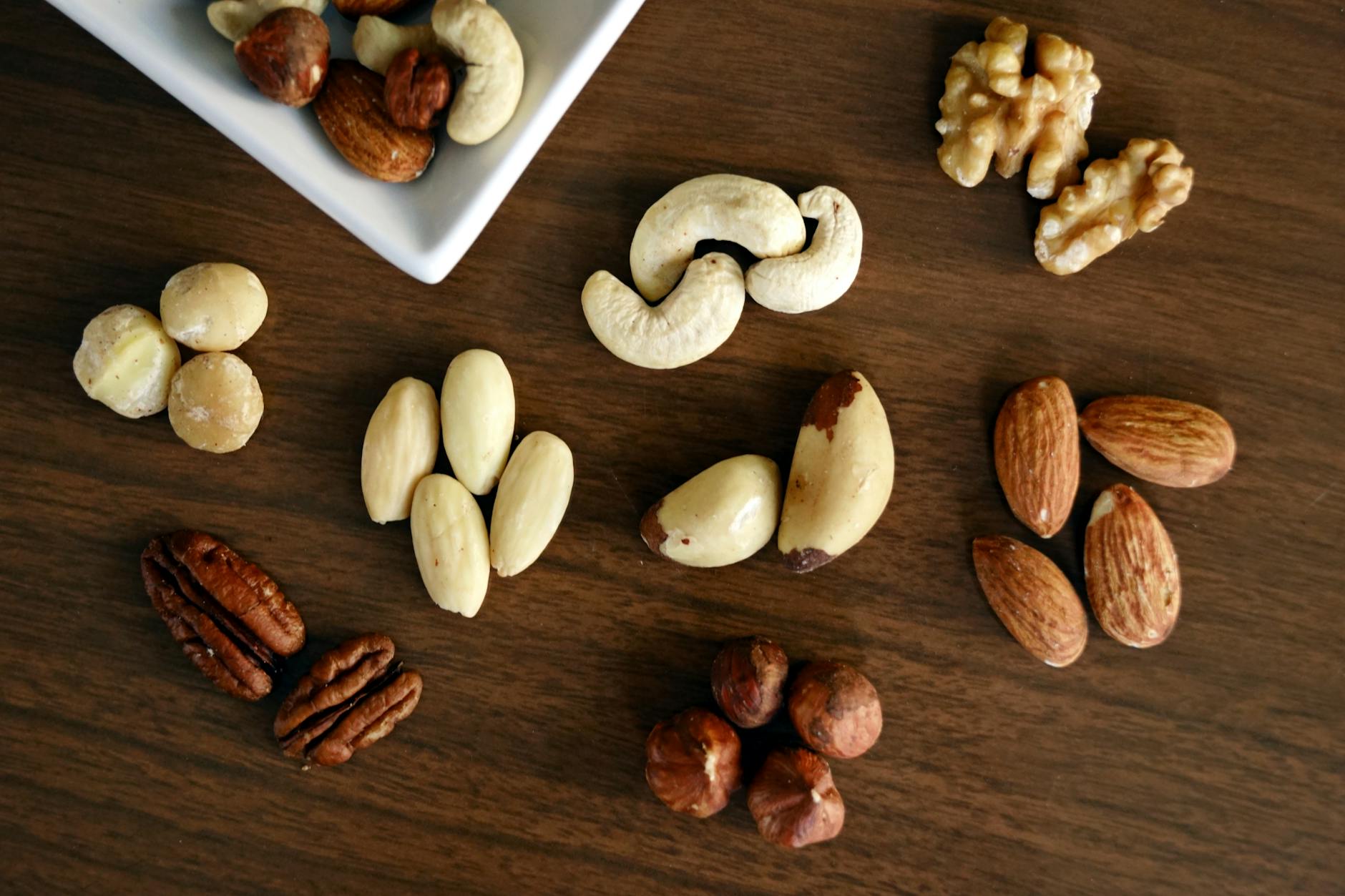Nourish to Flourish: The Foundation of a Thriving Life

A balanced diet and healthy lifestyle are not luxuries; they are necessities. The World Health Organization (WHO) defines health as “a state of complete physical, mental, and social well-being and not merely the absence of disease.” At Transformationwithin, we go one step further — we believe true wellness includes emotional intelligence, resilience, and long-term vitality.
Global Snapshot – 2025 DataA study published in The Lancet as part of the Global Burden of Disease Study 2017 estimated that poor diets were responsible for approximately 11 million deaths globally in 2017, accounting for about 20% of all deaths worldwide. TIME
Key Findings on Diet, Obesity & Global Health
Leading Causes of Diet-Related Deaths: Cardiovascular diseases and certain cancers 🎗️ were the top causes of diet-related deaths.
🥦 Dietary Factors Contributing to Mortality
- Low intake of healthy foods:
- 🌾 Whole grains
- 🍎 Fruits
- 🥦 Vegetables
- 🌰 Nuts & seed
- High intake of unhealthy foods:
- 🥓 Processed meats
- 🥤 Sugary beverages
- Poor diet had more impact on mortality than smoking 🚭.
📈 Future Projections – World Obesity Federation (2025 Atlas)
- Adult obesity will rise by 115% from 2010 to 2030:
- 2010 → 524 million adults with obesity
- 2030 → 1.13 billion adults projected
- Obesity causes 1.6 million premature deaths annually — mainly from:
- Diabetes 🩸
- Heart disease ❤️
- Stroke 🧠
- Cancer 🎗️
- Deaths from obesity-related conditions surpass road traffic fatalities (1.2 million in 2021).
Global Obesity Trends (WHO)
- Obesity has nearly tripled since 1975.
- 2022 statistics:
- 1 in 8 people worldwide (over 1 billion individuals) were living with obesity.
- 43% of adults were overweight.
- 16% met the criteria for obesity.
Childhood & Adolescent Concerns
- From 1990 to 2022, obesity among ages 5–19 increased from 2% to 8% globally.
- Represents a 4× increase in just three decades.
💡 Urgent Call to Action
- Promote healthier diets with nutrient-rich whole foods.
- Increase physical activity and reduce sedentary lifestyles.
- Implement public health policies to reduce obesity rates worldwide.
South African Snapshot – 2022–2025
📊 Overweight & Obesity Rates
- 2016 South African Demographic & Health Survey:
- 68% of women 🚺 and 31% of men 🚹 were overweight or obese.
- South Africa ranks among the highest in sub-Saharan Africa for obesity rates.
- World Obesity Federation (2025 Atlas) projections for Africa by 2030:
- 45% of women overweight/obese
- 26% of men overweight/obese
- South Africa’s rates will be among the continent’s highest
⚠️ Health Consequences – Non-Communicable Diseases (NCDs)
- Leading causes of death in South Africa:
- Diabetes
- Hypertension
- Stroke
- Heart disease
- Strongly linked to poor diet & inactivity.
📢 WHO Recommendations for South Africa
- Implement stronger policies to protect children from unhealthy food marketing.
- Restrict marketing of HFSS foods & drinks:
- High in saturated fats
- Trans-fatty acids
- Free sugars
- Salt
- Promote healthier dietary choices through mandatory restrictions and public education campaigns.
🛑 Causes of Rising Obesity in South Africa
- Rapid urbanisation
- Sedentary lifestyles (low daily physical activity)
- Unhealthy dietary habits
- Limited access to nutritious foods
🍔 Impact on Children
– About 1 in 3 South African children eat fast food & sugary drinks weekly.
– This is a major driver of childhood obesity and related health problems.

🌱 How TransformationWithin Helps You Heal & Thrive
At Transformationwithin, we don’t just give advice — we empower deep, sustainable change through personalized coaching, scientific tools, and emotional healing
1️⃣ Identify Root Causes
3️⃣ Emotional Eating Healing
5️⃣ Mindful Eating Coaching
7️⃣ Supplement Support
9️⃣ Habit Building & Tracking
2️⃣ Nutrition Education
4️⃣ Weekly Meal Planning
6️⃣ Sugar & Soda Detox Plans
8️⃣ Teen & Parent Coaching
🔟 Holistic Wellness

👨👩👧 Coaching Parents to Raise Emotionally Intelligent Children
Nutrition is the foundation of emotional intelligence. A healthy, emotionally safe home creates children who are resilient, self-aware, and mentally strong.
1️⃣ Link Food to Feelings
3️⃣ Model Emotional Language
5️⃣ Build Empathy at Home
7️⃣ Strengthen Communication
9️⃣ End Emotional Eating Cycles
2️⃣ Create Consistent Routines
4️⃣ Practice Co-regulation
6️⃣ Teach Calming Techniques
8️⃣ Empower Emotional Boundaries
🔟 Parent with Awareness
How Food Affects Your Entire Life
Your food is your medicine — or your poison. Food is more than fuel. Every bite you take sends signals to your brain, gut, and every cell in your body — shaping your energy, mood, immunity, and longevity.
🌿 The Power of a Balanced Diet – Eating real, whole foods — fruits, vegetables, quality proteins, healthy fats, and whole grains — can:
- 🧠 Fuel the brain for learning, focus, and emotional stability.
- 🌱 Support gut health, which controls 70% of immunity and 90% of serotonin production.
- 🔥 Reduce inflammation, the root of most chronic diseases and mental health issues.
- ❤️ Protect against heart disease, cancer, diabetes, and depression.
🚫 The Damage of Junk Food & Sodas – Short-term pleasure often brings long-term harm. Processed foods, sodas, and energy drinks:
- 📈 Spike blood sugar → mood swings, anxiety, and fatigue.
- 🦠 Disrupt the gut microbiome → obesity, autoimmune issues, and depression.
- ⚠️ Contains additives & chemicals linked to ADHD, irritability, and brain fog.
- 🛑 Deplete nutrients → weaker immunity, poor skin, disrupted sleep, hormonal imbalance
💡 Did you know? Drinking just one can of soda a day raises your risk of type 2 diabetes by 26% (Harvard School of Public Health).
💔 The Real Cost of a Poor Diet

💪 Physical Health Risks – Consistently eating junk food and energy drinks increases risk of:
- Obesity
- Non-alcoholic fatty liver disease
- Type 2 diabetes
- Acne, sleep disorders, and fatigue
- Hormonal disruption

🧠 Mental & Emotional Impact
- High-sugar diets → higher rates of depression, anxiety, and poor focus.
- Weakens executive function → impulsivity, procrastination, low motivation (especially in teens).
- Junk food inflammation damages memory and emotional regulation.

🤝 Emotional & Social Health
- Poor diet → low self-esteem, irritability, social withdrawal (especially in children & teens).
- Childhood emotional eating → guilt, shame, and lifelong unhealthy patterns.
- Processed foods can dull empathy, patience, and resilience.
Our Programmes
Our coaches provide comprehensive interventional support for students through both group and individual program options.
Get In Touch
Reach out to learn more about how we can help, or if you have any questions or concerns
